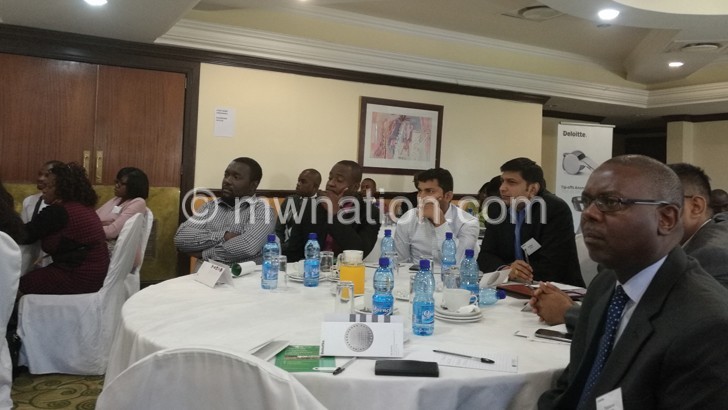Experts weigh in on new transfer pricing legislation
Deloitte South Africa associate director responsible for transfer pricing, Cabrin McCarrick, has said the enactment of the Taxation (Transfer Pricing Documentation) Regulation will help in ensuring Malawi’s tax base, saying the onus rests in the tax-payer to ensure compliance.
Transfer pricing involves the pricing of goods and services between parties that control one another whether directly or indirectly. While not entirely illegal, transfer pricing manipulation is considered illegal.
McCarrick said this in Blantyre on Wednesday on the sidelines of the Deloitte Malawi tax update and transfer pricing workshop in the work of the gazetting of the legislation, which came into operation on July 1 2017.

He said: “Timing will be quite difficult for the taxpayer to comply. However, it is key to note that there has been this legislation in Malawi since 2009 which gives a taxpayer further guidance on what he is required to do.
“In the first year, there is a lot of work that needs to be done, but the onus is on tax payer to ensure they comply. However, this has long term benefits which once you have designed appropriate polices, will have long term benefit for businesses and the economy.”
Deloitte Malawi partner responsible for tax and advisory, Nkondola Uka, said while transfer pricing has been very significant, the main concern for regulators is that transaction between related parties may not be done at arm’s length value which may end up migrating profits from Malawi.
“As we are now going forward, there are certain areas that will need certain clarification. If you look at transfer pricing rules, when you have a transfer pricing policy, it will be across the jurisdiction of other countries. By having these policies by local tax authorities, you will avoid any double taxation; that is why we are saying you should have these policies in place,” he said.
Figures from the Reserve Bank of Malawi (RBM) indicate that Malawi has lost about $980 million (approximately K719.32 billion) to illegal foreign exchange externalisation and transfer pricing between 2010 and 2017.
United Nations estimates indicate that Malawi loses nearly 16 percent of its total gross domestic product (GDP) due to illicit financial flows. n





